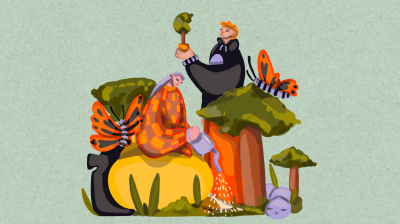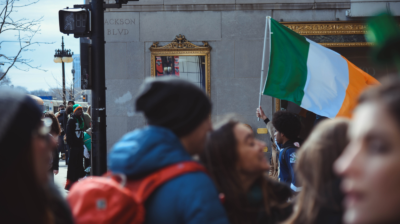Choosing the right path for you after college
Unsure what you want to do after college? Louise gives her take on deciding what to do next

Work hard, play hard, but which one? At the start of my final college year, the people with plans panicked me. I’d inquire as to their plans post our shared lives, and they’d tell me how they knew what they wanted to do, maybe had known for ever, or perhaps their degree had set them up for a job.
I, on the other hand, changed my mind daily. Jumping from wanting to be a lawyer, to a journalist, to a year in Australia, to a masters in human rights. When I replied that I didn’t know what to do, people were consoling, told me I’d find out soon, as though I just had to be patient and the answer would come to me. At the end of the year, the consoling hadn’t changed but my attitude had.
I no longer minded that I didn’t have a plan. For perhaps the first time in my life, the future was deliciously free. But there does seem to be two distinct paths; work or play. As though we need to decide whether we want to begin our lives as ‘real adults’, or continue with the youthful, carefree identity of student. Do we delve head first into building the road for our long term futures? Lay the foundation for the lives we will live long after we are young, wild and free? Continue to study, write dissertations, pursue Masters degrees? Or do we decide to live our most instagrammable life? Embrace the fact that we are virtually free of any heavy responsibilities to anyone but ourselves, not yet caring for family members.
Work isn’t necessarily the 9-5 slog that our parents are used to. ‘Work’ encompasses the studying of Masters degrees, exams to become lawyers, placements to pursue vocations. Long gone are the notions that an undergraduate degree will suffice, we are more realistic now, knowing that we’ll have to do more, get more, be more if we are to enter the pay bracket our parents have aspired for us. Work feels comforting, for it is what we have known. But its safeness and its demand for dedicated and hardworking individuals feels like a big ask after an arduous final year. It directs us where we will go, signposting our future, which is both a blessing and a curse. The certainty offers comfort and fear; secure in the knowledge that one day, we will be one thing, terrified in the potential that it is all that we will ever be. The thought of becoming a lawyer at 25, and remaining one for the next 40 years is both reassuring and downright terrifying.
Play is different things for everyone. It encompasses anything that isn’t putting you directly on the road to perceived professionalism. Often people say they’re ‘taking a year out’, a term I have issues with, what are they taking a year out from? Is life really all about work or education? Is travel not as worthy an endeavour? Does following one’s passion mean that they’re on a break from ‘real’ life? I have friends going backpacking in Vietnam, travelling Australia for a year, teaching English in Austria. Others are staying in Ireland, but indulging in activities that were only seen as a waste of time during the academic year; partaking in an outdoor pursuits course, practicing music and focusing more on his band, visiting long distance partners more frequently, to name but a few examples.
In my experience, those who know how they want their life to look, and have the means to achieve it, invest their time and attention into it. Colleagues briefly emerge from the burden of final exams, to then spend the summer studying for September exams to pursue their dream jobs as barristers. Those who have masters are free to enjoy their last collegial summer, J1s and month long backpacking expeditions planned long in advance. Others are free from the pressures and deadlines of college and can now guilt free pursue their passions; whether that be music, art, religion, or writing.
Either way, the future seems blissfully long, and our ability to change our minds and pursue alternative paths is one that won’t be taken for granted.






